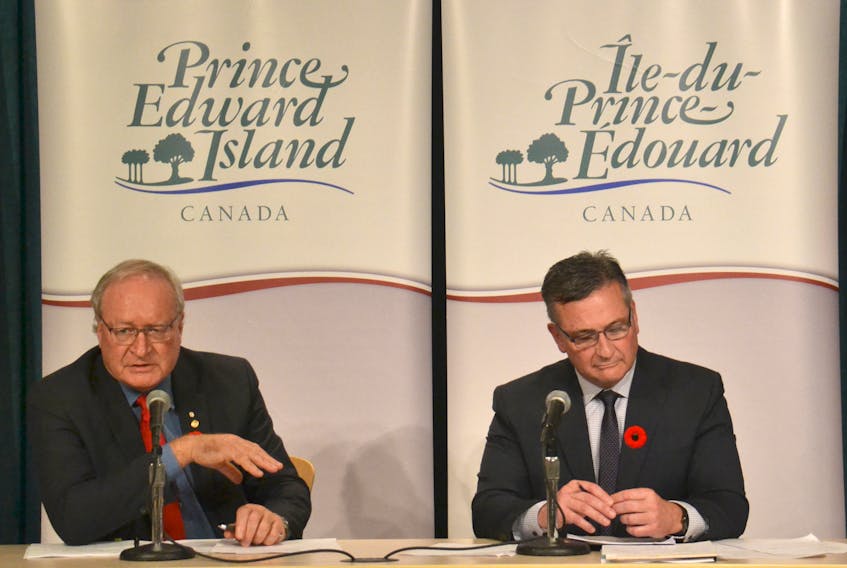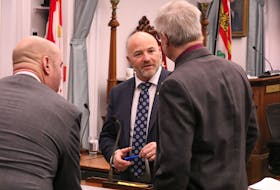CHARLOTTETOWN, P.E.I. - The province’s surplus for the last fiscal year has ballooned from an estimate of $1.2 million to $75.2 million.
On Wednesday, Premier Wade MacLauchlan announced a much larger-than-expected budget surplus of $75.2 million over the 2017-2018 fiscal year. This past April, the province estimated the budget surplus for the 2017-2018 fiscal year to be just $1.2 million.
MacLauchlan said the surplus was larger than expected due to a leap in tax revenue from individuals and businesses. The province’s overall economy has grown from $6 billion in 2015 to $7 billion in 2018, while 6,600 jobs were created during the same time period.
The entirety of the surplus will be put towards servicing the Island’s debt.
"After three years of hard work and growth, based on the success of Prince Edward Islanders, our province is in a better position to invest in key priorities," MacLauchlan said at a press conference on Wednesday.
Finance Minister Heath MacDonald said revenue from corporate income taxes rose by $38.2 million, while revenue from the Harmonized Sales Tax and personal income taxes rose by $25.4 million and $8.4 million, respectively. This accounted for the majority of a $120 million overall increase in tax revenue seen by the province.
“Businesses are doing well,” MacDonald said.
"There's a lot of small businesses that were expanding. It comes back a little bit to our population growth. We've done extremely well. We've led the country.”
MacDonald said the province has developed programs that encouraged business growth, while at the same time has invested in the province’s social safety net.
He listed a number of investments in social programs – including a $32-million increase in health-care spending, tuition grants for 1,000 post-secondary students and the establishment of 400 new childcare spaces – that were part of the province’s 2018 budget.
P.E.I.’s 2017-18 blue books in a nutshell
- $75.2 million surplus
- $120 million increase in tax revenue from 2017
- $73.8 million increase in spending from 2017
- 32 per cent net debt-to-GDP ratio
MacDonald and MacLauchlan also suggested that, in light of the budget surplus, new program announcements in the areas of housing and mental health would be forthcoming. MacDonald said the province expected to make an announcement related to housing “possibly as soon as next week”.
Several communities in P.E.I. are experiencing a shortage of affordable rental housing. At present, there are between 800 and 900 P.E.I. seniors on wait lists for subsidized housing. The rental vacancy rate in Charlottetown is below one per cent.
MacDonald said the decision to allocate the $75 million surplus entirely to debt servicing was based on accounting standards.
"We have to rely on the diversity of our economy to continue to grow. You can't go too far out on a limb to pass it off to future generations down the road," MacDonald said.
"This is no different from paying down your credit card."
MacLauchlan said it has been more than a decade since a payment was made against the province’s net debt.
The province’s net debt as a percentage of gross domestic product is declining. The net debt-to-GDP ratio stood at 32 per cent in 2018, down from 35.7 per cent in 2016.
MacLauchlan said P.E.I. has the fourth lowest debt-to-GDP ratio among other provinces in Canada.
RELATED: P.E.I. government tables first balanced budget in over a decade









